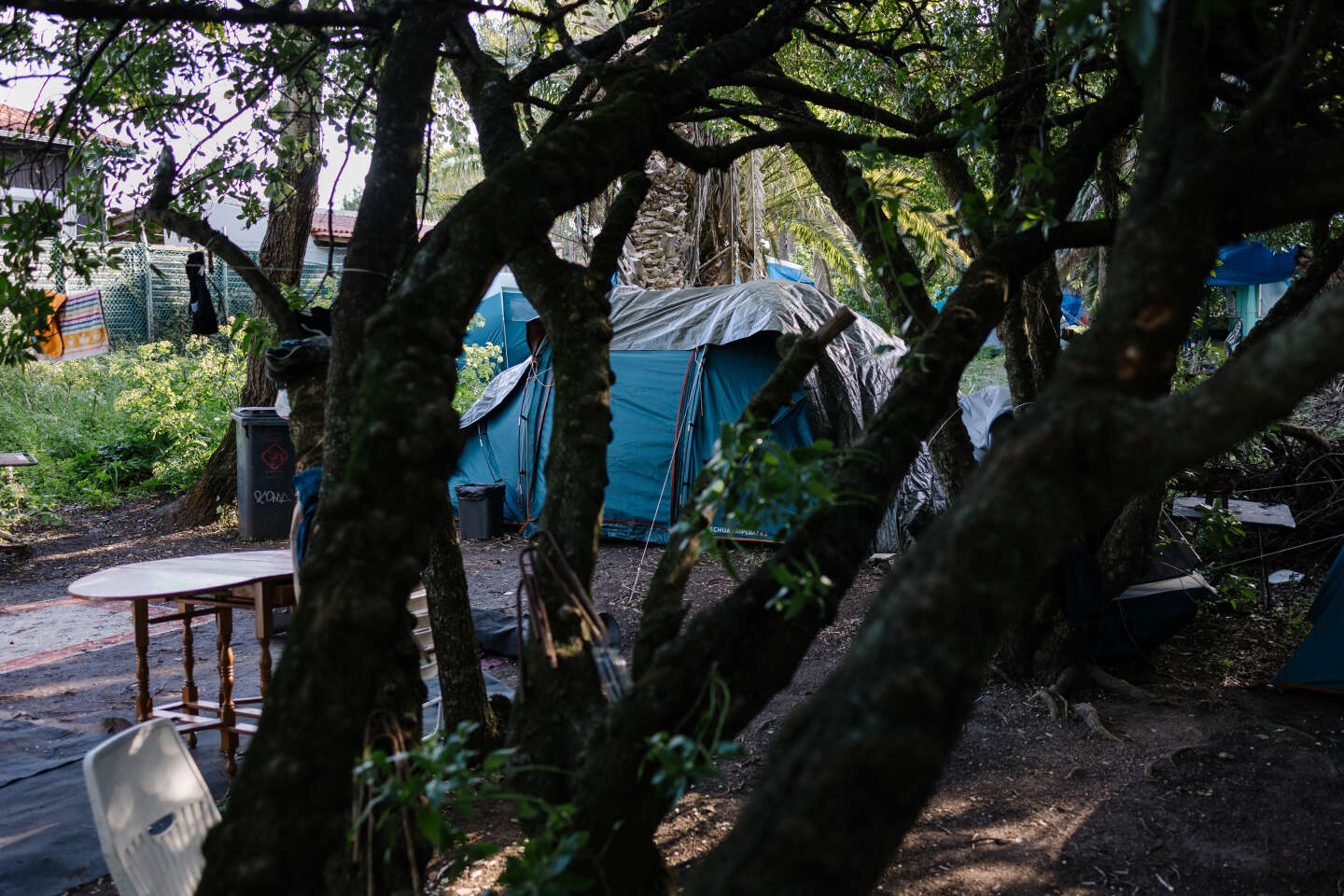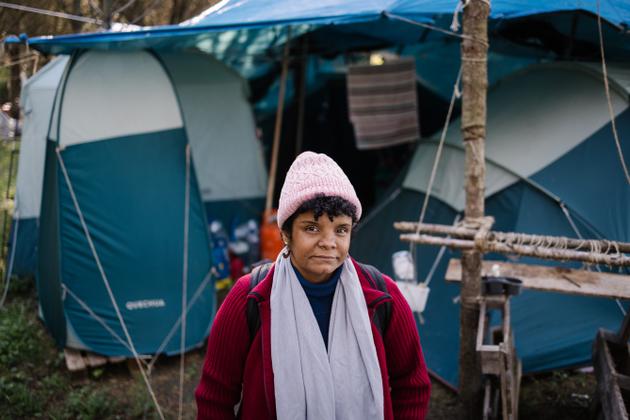
It is 8:30 a.m. on Wednesday, February 28, and men and women are making their way one by one, at irregular intervals, under the trees of Lisbon's Quinta dos Ingleses Park. With sleepy eyes they leave their tent. After crossing the wasteland facing Carcavelos Beach, popular with surfers, and passing the posh British private school St. Julian's School with luxury cars paraded in front of it, they arrive at the train station for their work in Lisbon.
“ I had to pay €400 a month for a room in the city, which, with my salary of €800, barely left me enough to live on.explains Andrea Costa, 49, a Brazilian carpenter and cleaner at tourist apartments in Lisbon. After living in Portugal for a year and a half, she came to pitch her tent in Quinta dos Ingleses in September 2023, after hearing about it from a friend. “I strategized and made this decision with one goal in mind: to be able to save money to buy a caravan to live in with dignity. »
If the Portuguese government increases the minimum wage by approximately 8% in 2024, to €820 per month (for fourteen months a year, or €950 over twelve months), which is increasingly close to the average salary (net 1,050 euros), rents will rise by more than 20% in 2023 in the capital, according to statistics from the real estate portal Idealista. In three years, rental prices jumped by 50%, and doubled in seven years.

A sign pinned to a tree marks the entrance to Andrea's camp, which she cheekily calls “the brown campground” and which she shares with a friend who is a cook. The latter, Marcia Alfaro, 42, had previously rented a bed in a room for 250 euros a month. Now, everyone lives in one of two large tents facing each other. They set up a kitchen with gas stoves and a precarious shower under a pole tent where there is a bucket filled from the river.
“The city is no longer ours”
Like them, more than thirty precarious workers, mostly Brazilians, but also a few Portuguese and Angolans, chose to live in a tent about twenty kilometers north of Lisbon, rather than spend most of their meager salaries on precarious housing. Nelson Figuera, 21, starts a new job as a salesman, after a few months working as a construction worker. My lover, a metalworker, had already left an hour ago, explains his wife, Swazi Vegas, 36. Six months ago, the couple left the one-bedroom apartment they shared with five other people in Lisbon for 400 euros a month, preferring to live in a tent over the socialization and lack of privacy imposed on them by their low income.
You have 60.02% of this article left to read. The rest is reserved for subscribers.






